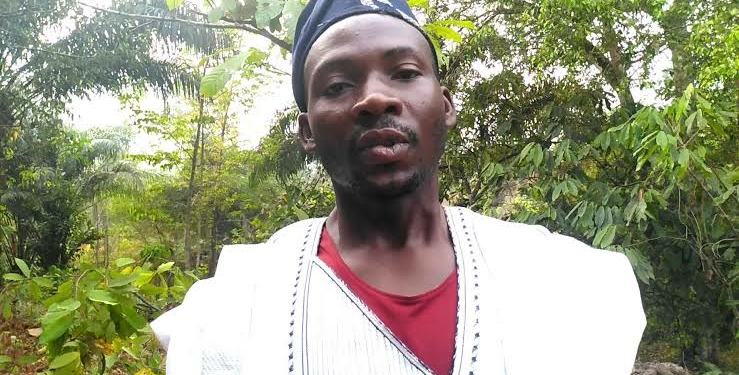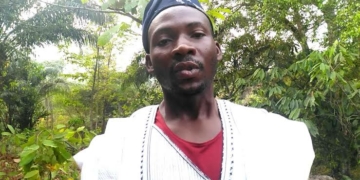People think they are capable of defending God. They consider fighting those who reject their God to be their divinely mandated duty. Nobody who is a believer wants to be perceived as not standing up for God’s supremacy. Seeking his protection against foes and invaders today and fighting fellow humans the other day to defend him do not bother them.
In their eyes, it’s more like a barter exchange: if he defends me now, I’ll defend him later. From the time of the Bible to the present, this instinct was developed over many years. Only God knows for sure who really worships him, even in the midst of humankind’s constant endeavor to demonstrate compassion and morality.
Nigeria is a part of a community of nations whose people barter goods and services with God. They implore him to protect them from bad guys and to protect him in return. They report evildoers to God when they suffer harm. If someone mistreats God as well, they flare up and present the Supreme being they adore and respect as a weakling who can only defend the rights of others while failing to defend himself. This concerned a man named Abdulazeez Adegbola, born into a Muslim family and later became a traditionalist.
When Abdulazeez Adegbola, also referred to as “Tani Olohun” made the decision to burn the Quran, he doesn’t appear to be illiterate. He is aware of what blasphemy is and how the law frowns at it. He’s aware of which area of the nation he can burn the Quran in, and he won’t face a death sentence on the basis of Sharia law or a two-year prison term under customary law. Not only did “Tani Olohun” burn the Quran, but he also criticized certain religious authorities and spoke out against certain religious teachings.
“Tani Olohun” would respond that religious leaders in Islam and Christianity had treated followers of African religions worse if you asked him why he desecrated the Quran and disparaged religious authorities. He would utilize songs that denigrate Orishas and the popular saying “Olorun ba wa pa Ina adebo re” as justifications or grounds for his criticism. It slipped Tani Olohun’s mind that the people he accused of disobeying the “Orishas” had not mentioned the names of any religious authorities. All they do is criticize the faith and its practices.
Regretfully, Tani Olohun was not wise; he was merely cunning in his mission. He might have been overlooked if he had kept defiling the Quran since many would have said that since he purchased the book, he was free to do as he pleases with it. However, he disparaged, humiliated, and falsely accused a number of well-known Nigerians who practiced these faiths. To quell public anger, they chose to defame people rather than burn the Quran as a form of punishment. Among other things, he was arrested for slander and defamation. He was freed from Kwara jail after more than six weeks of incarceration following an apology and the easing of his previously strict bail conditions.
Life is like a coin with two sides. Even though Tani Olohun insulted religious authorities and desecrated the Holy Quran, his activism wasn’t all that horrible. He claimed that Islamic clerics or Sheiks who disparage customary purification methods or approaches to problem-solving in public do the same in private. He made public a few films purportedly featuring Islamic clergy making contradictory remarks to Islamic principles. He went on to challenge Islamic clerics to only use the Quran as a source of guidance in spiritual matters, rejecting African practices. He claimed that the Lekulejas, or those who offer African herbs and materials for sacrifices and rituals, are heavily patronized by clergy. Furthermore, he said that Muslims make up the bulk of “Lekuleja” vendors.
There are recordings showing certain Islamic clerics endorsing and encouraging the use of these materials, in addition to the numerous accusations of the unholy contact between Lekulejas and Muslims. Indeed, some Islamic clerics would advise their adherents to search for cow eyes among other objects to be utilized in rituals. I have seen films, among other things, of Islamic clerics advocating sacrifices in order to pacify others. It is impossible to participate in an activity in secret while denouncing it in public. Both censure and moderation are necessary. Be Osaka if that’s what you want to be, and Osoko if that’s what you want to be. That is the message conveyed by Tani Olorun.
Islamic scholars have discussed using African religious customs to resolve disputes within the Muslim community verbally over the years. Certain people have consistently advocated for Quranic quotations to address issues, while others contend that these are insufficient in all cases. The war was not won by those who consider themselves devout Muslims. These priests and their adherents made fun of, humiliated, and ridiculed them.
If there’s anything Tani Olohun had achieved for the Nigeria Muslims with his activism in the course of propagating African religion, it’s raising the bar of truism in Islam from a deliberate angle which has indirectly cautioned some clerics and made others retract their past words or actions. We now have clerics who once boasted of voodoo in public now condemn it and criticize Muslms who still engage in it. We have clerics who preach true teachings of the prophet and advocate for truism. If we remove the defamation and burning of the Quran which he had apologized for, Tani Olohun should be awarded by the Nigerian Muslim community.






Discussion about this post